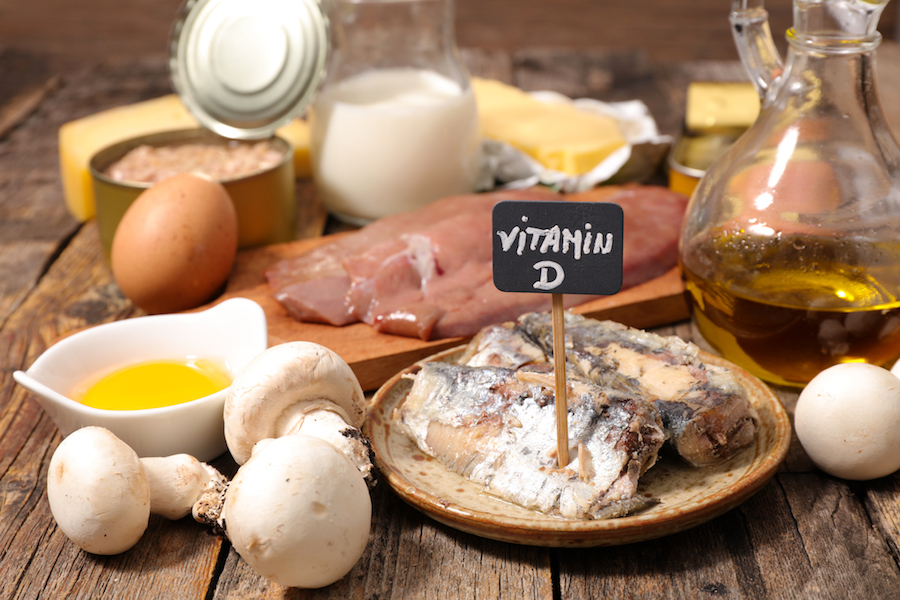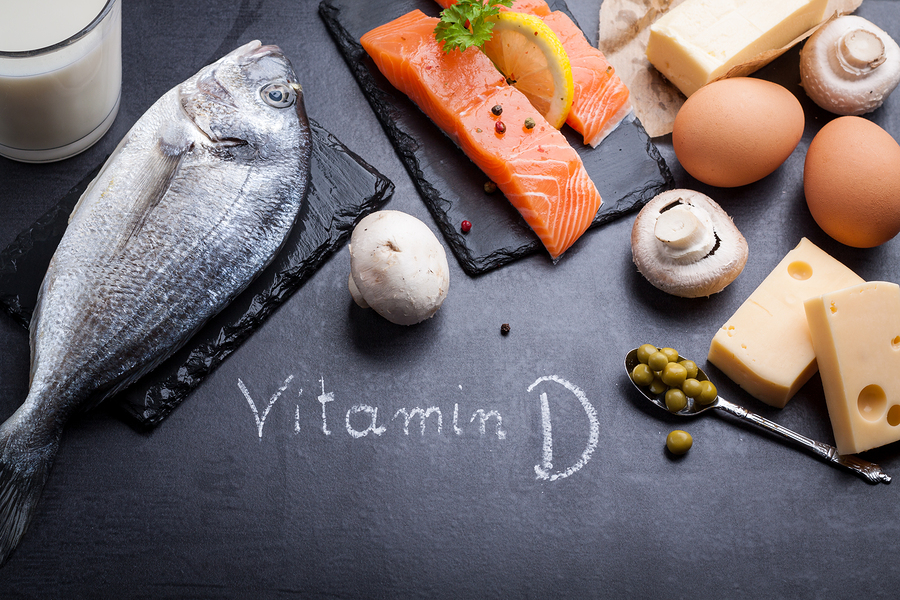Vitamin D – are you getting enough?
Current Government guidelines advise that all of us in the UK, including children from the age of one, should be taking a daily 10 microgram dose of vitamin D from September to March.
Why is vitamin D essential?
Vitamin D helps our bodies absorb and use calcium and phosphate from our diet which are essential minerals for healthy bones, teeth and muscles.
We need vitamin D to build strong bones which will reduce our chances of developing osteoporosis, the bone thinning disease. Vitamin D also regulates cell growth, neuromuscular function, reduces inflammation and helps us to keep our immune system in good shape.
What happens if we don’t get enough vitamin D?
A vitamin D deficiency may result in bones becoming soft and weak which can lead to bone deformities. In adults bone pain and sensitivity, a condition called osteomalacia, may occur. Muscle pain and weakness has also been associated with low vitamin D levels.
How much sun do we need to get enough vitamin D?
UVB rays from sunlight is the best way to get enough vitamin D into our bodies. However, in the UK this is only effective between the months of late March and September which is why the government advises us to take a supplement over the autumn and winter months when sunlight is at its weakest.
Everyone is different but approximately 10 – 15 minutes of sun exposure during the summer months in the UK should help build up our body’s stores of vitamin D. Exposure should be on bare skin, particularly on the forearms, hands and lower legs. Vitamin D is fat-soluble so can be stored in fatty tissue.
As UVB rays cannot penetrate glass then sitting by a window will not help us to get the vitamin D that we need. The sun exposure must come from outside, however it is important not to stay in the sun longer than this without sun protection as this will increase the risk of skin damage and cancer.
Can we get vitamin D from food?

Food high in vitamin D
It is very difficult to get enough vitamin D from diet alone as few foods contain vitamin D in sufficient quantities. There are, however, small amounts found in:
- Oily fish (such as herring, salmon, mackerel and sardines)
- Liver
- Egg yolks
- Wild mushrooms
Vitamin D is added to some foods, look out for the ‘fortified’ label on:
- Cereals
- Margarine
- Reduced fat spreads
- Milk
- Almond milk products
Vegans or vegetarians are at a higher risk of vitamin D deficiency as most foods which naturally contain vitamin D are products of animal origin. It is therefore advised to speak to your GP if you think you may be suffering from a vitamin D deficiency as your levels can be tested.
Vitamin D supplements
A daily 10 microgram dose of vitamin D is recommended by the Department of Health during the winter months. These can easily be obtained over the counter in most pharmacies, health food shops or supermarkets.
Who is most at risk?
Those most at risk of being deficient in vitamin D are:
- Older people, or those who are frail, housebound, or have limited sun exposure
- People who wear clothes which cover their skin completely
- People with dark skin as they have higher melanin (skin pigment) levels, which slows vitamin D production.
- People with liver disease, malabsorption disorders, cancer and those needing steroids for treatment
- Children from birth to 4 years old.
If you are worried that you may not be getting enough vitamin D and/or you find yourself in the above most at risk list then it may be worth talking to your pharmacist or GP about your symptoms and consider supplementing your diet with a good-quality vitamin D.
Disclaimer
All content on Silversurfers.com is provided for general information only, and should not be treated at all as a substitute for the medical advice of your own doctor or any other health care professional. Silversurfers will not be responsible or liable for any diagnosis made by a user based on the content on www.silversurfers.com and we are also not liable for the content of any external websites or links from or to Silversurfers to any other websites. Please always consult your own doctor if you’re in any way concerned about any aspect of your health.
Melina - Assistant Editor
Latest posts by Melina - Assistant Editor (see all)
- Top tips for hay fever sufferers - April 14, 2024
- Paysan Breton Cream Cheese Breakfast Wraps - April 12, 2024
- 4 Homemade Sweet Treats for Easter - March 24, 2024
- Playground Memories - March 10, 2024
- The invasion of the duvet: the ’10-second bed’ - February 20, 2024






















